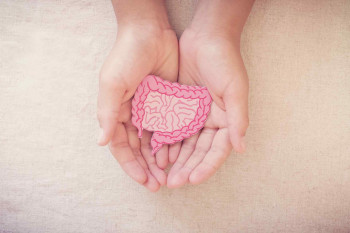Laughing Your Way to Good Health: The Benefits of Laughter on the Brain and Spine
Laughter is often referred to as the best medicine, and for good reason. It is a universal language that transcends cultural barriers, bringing people together in moments of joy and happiness.
Beyond its social and emotional benefits, laughter has been found to have a profound impact on our physical well-being, particularly on the brain and spine.
In this blog, we will explore the fascinating ways in which laughter can positively influence our neurological health and overall quality of life.
The Neurochemical Effects of Laughter
Laughter triggers the release of various neurochemicals, such as endorphins, serotonin, and dopamine, which are responsible for the feelings of pleasure and happiness. Endorphins act as natural painkillers and help alleviate stress, while serotonin enhances mood and promotes a sense of well-being. Dopamine, often associated with reward and motivation, contributes to the positive reinforcement loop that laughter creates.
Furthermore, laughter increases blood flow and oxygenation in the brain, leading to improved cognitive functioning and enhanced alertness. Studies have shown that laughter can boost memory, attention, and creativity.
It also stimulates the production of brain-derived neurotrophic factor (BDNF), a protein that supports the growth and survival of neurons, promoting brain health and plasticity.
Laughter and Stress Reduction
One of the most well-known benefits of laughter is its ability to reduce stress. When we laugh, our bodies undergo physiological changes, including decreased heart rate, blood pressure, and muscle tension.
These changes counteract the effects of stress hormones like cortisol, which, when chronically elevated, can contribute to numerous health issues, including cardiovascular disease, compromised immune function, and mental health disorders.
Research has shown that laughter can modulate the stress response by reducing the production of cortisol and increasing the activity of the parasympathetic nervous system, which promotes relaxation.
By triggering the release of endorphins, laughter acts as a natural stress reliever, helping individuals cope with anxiety and tension more effectively.
Laughter and Pain Management
Laughter has been found to have pain-relieving properties, similar to the effects of certain medications. When we laugh, our bodies produce endorphins, which interact with the brain's opioid receptors, reducing the perception of pain.
This natural analgesic effect of laughter can be particularly beneficial for individuals dealing with chronic pain conditions.
Moreover, laughter induces muscle relaxation and triggers the release of oxytocin, a hormone associated with social bonding and feelings of pleasure.
This combination can help alleviate muscle tension and promote a general sense of well-being, further enhancing the pain-reducing effects of laughter.
Laughter and Spinal Health
While laughter predominantly affects the brain, its benefits extend to the spine as well. Laughter involves the activation of various muscles, including those in the abdominal region and the diaphragm. This muscular engagement stimulates the spine, promoting better posture and spinal stability.
Additionally, laughter can improve spinal flexibility and mobility. When we laugh, we engage in rhythmic movements, such as bending forward and backward, twisting, and stretching. These movements gently exercise the spine, helping to maintain its range of motion and preventing stiffness and discomfort.
Conclusion
Laughter is not just a simple response to humor; it is a powerful tool for promoting overall health and well-being. Its impact on the brain and spine is truly remarkable.
From the release of beneficial neurochemicals and the reduction of stress and pain to the improvement of cognitive function and spinal health, laughter offers a multitude of benefits.
Incorporating laughter into our lives can be as simple as watching a comedy show, sharing jokes with friends, or engaging in playful activities.
By prioritizing laughter and humor, we can unlock the numerous health advantages it offers. So, let us embrace the contagious power of laughter, as it holds the key to a healthier brain, a happier mind, and a more resilient spine.
FAQs (Frequently Asked Questions) about the Benefits of Laughter on the Brain and Spine:
How does laughter affect the brain?
Laughter has several effects on the brain. It triggers the release of endorphins, serotonin, and dopamine, which are neurochemicals responsible for feelings of pleasure and happiness. It also increases blood flow and oxygenation, promoting improved cognitive functioning and memory. Additionally, laughter stimulates the production of brain-derived neurotrophic factor (BDNF), supporting brain health and plasticity.
Can laughter help reduce stress?
Yes, laughter is a powerful stress reducer. When we laugh, our bodies experience physiological changes that counteract the effects of stress hormones. Laughter decreases heart rate, blood pressure, and muscle tension, while increasing the activity of the parasympathetic nervous system, which promotes relaxation. The release of endorphins during laughter acts as a natural stress reliever, helping individuals cope with anxiety and tension.
Can laughter help manage pain?
Absolutely. Laughter has been found to have pain-relieving properties. When we laugh, our bodies produce endorphins, which interact with the brain's opioid receptors, reducing the perception of pain. Furthermore, laughter induces muscle relaxation and the release of oxytocin, a hormone associated with pleasure and social bonding. This combination can alleviate muscle tension and enhance the overall pain-reducing effects of laughter.
How does laughter impact spinal health?
Laughter not only affects the brain but also has benefits for spinal health. When we laugh, various muscles, including those in the abdominal region and the diaphragm, are engaged. This muscular activation stimulates the spine, promoting better posture and stability. Additionally, laughter involves rhythmic movements that gently exercise the spine, improving flexibility, mobility, and maintaining its range of motion.
Can laughter improve overall well-being?
Yes, laughter has a significant impact on overall well-being. It promotes positive emotions, strengthens social connections, and enhances quality of life. Laughter boosts mood, reduces stress, and improves cognitive function. It also promotes relaxation and better sleep. By incorporating laughter into our lives, we can experience improved mental, emotional, and physical well-being, leading to a healthier and happier lifestyle.

























